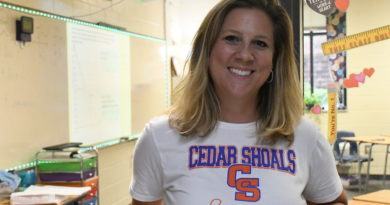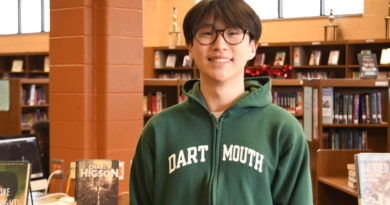Genders and Sexualities Alliance club returns to Cedar
Sponsored by Tara Stuart, English department, and Counselor Christina Cotsakis Cordon, the Genders and Sexualities Alliance (GSA) is a new after school club for LGBTQ+ students to socialize with each other.
Research shows that GSAs are linked to feelings of school connectedness among LGBTQ+ students. They are also linked to increased feelings of self esteem and purpose according to a CDC study.
GSA disbanded from Cedar Shoals and has returned. GSA has already met several times and will continue to meet every Tuesday from 3:35 to 5 p.m. in room C209.
“It’s going to be whatever the students want,” Stuart said.
Led by LGBTQ+ students, GSA is a step in making Cedar a safer place for the community. For students who don’t feel comfortable expressing themselves, GSA is a place to do so freely.
“Sometimes identifying as LGBTQ+ here at Cedar can be an isolating experience,” Cotsakis Cordon said.
Student identities in the club are kept anonymous among members for personal and safety reasons.
Having a safe space that offers LGBTQ+ themed activities and clubs like GSA is not something everyone is used to.
“There wasn’t a club like this when I was growing up,” Stuart said.
GSA member junior Sarah Bishop believes that Cedar is a welcoming place with room for improvement.
“I grew up in a predominantly conservative school all the way up until Eighth grade, and it wasn’t easy to come out there. I feel like if I was at Cedar or even just Athens in general, I would’ve been able to come out sooner,” Bishop said.
Bishop believes that Cedar can be a safe place for LGBTQ+ students, but that each student’s situation is different.
“It depends on who your friend group consists of. There’s different groups in Cedar, you just have to look for the right people,” Bishop said.
Students interested in joining can talk to one of the sponsors, the only requirement being that students are respectful to people’s identities.
“Cedar Shoals can become a safer place — just like a lot of other places — for schools that have many different marginalized populations,” Cotsakis Cordon said.




